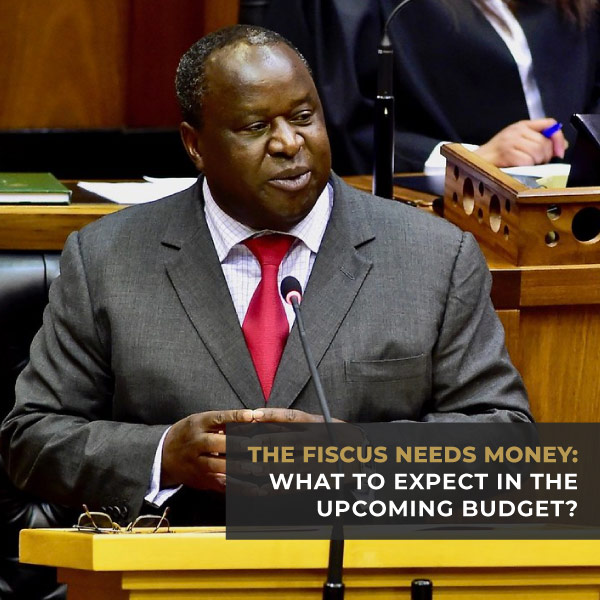PRINCIPAL OFFICERS MAY NO LONGER BE APPOINTED BY SERVICE PROVIDERS, SAYS FSCA
On 19 December 2019, the FSCA (Financial Sector Conduct Authority and the “Authority”) issued a communication informing the retirement funds industry and stakeholders about its new approach to addressing the inherent conflict of interest relating to principal officers (POs) appointed on boards of retirement funds (funds), while also being employed by service providers to these funds.
Sharna Mittel, independent principal officer, says the Authority should be lauded for clamping down on a long-standing practice that can lead to conflicts of interest and the reduction in the PO’s freedom to act independently, in protecting the interests of funds and their members.
“The Authority recognises that a PO’s ability to comply with his or her duty to report on the activities of the service provider is likely to be impaired if the PO is also employed by the service provider. The Authority has warned that it will issue Enforceable Undertakings – which are legally binding – to funds and service providers that are in breach of Directive PF No.8, which deals with the prohibition of the acceptance of gratification by fund officers, within the 6 month-time period that the industry has been given to comply,” says Mittel.
How a principal officer’s role can be impaired
Section 8(1) of the Pension Funds Act, 1956 (PFA) requires that every fund appoint a PO. The PO must act as the de facto chief executive officer of the fund, the liaison between the fund and the FSCA and the custodian of the fund’s governance practices.
The PO also has a legal duty to protect the members of the fund by reporting any matter that may prejudice the fund and its members, to the Authority.
Decision-making powers of the board may also be delegated to the PO, subject to a certain thresholds and ratification by the board.
“It has been standard practice for service providers to appoint a staff member internally to act as the fund’s PO, specifically in the retail retirement fund’s space, such as umbrella fund products There is an inherent conflict of interest in this situation as a PO that is employed by a service provider cannot perform his or her fiduciary duties independently, by potentially triggering the replacement of the service provider who hired him or her, if such service provider does not perform in keeping with the board’s expectations. This inherent conflict of interest is contrary to the interests of the fund’s members. The Authority is aware that several funds are in contravention of section 7C(2)(c) of the PFA which requires Boards of funds to avoid conflicts of interest, as well as Directive PF No 8 and they are now addressing the issue in a definitive, on the nose way,” says Mittel.
Six months to bring funds into compliance
Rumours have surfaced that some funds have already been issued Enforceable Undertaking by the FSCA, and the FSCA is said to be fielding calls by service providers who believe the Authority was mistaken when it issued the communication in December.
“The FSCA didn’t exclude retail funds from their communication. Going forward, umbrella funds, preservation funds, retirement annuity funds and all retail funds, may not employ the PO of their funds. From 12 December 2019, PO’s must be contracted directly by the fund, which will ensure that the PO serves the best interest of the fund and its members, instead of being fettered by service provider’s interests. The Communication issued by the FSCA will give funds and the relevant parties six months to appoint a new PO that is not employed by the service provider, release their POs from employment to be contracted directly by funds, or face regulatory action,” says Mittel.
She concludes by saying that in her view, the future role of POs will be completely independent, with no employer / employee relationship to fetter their duty to protect members.
“A service provider employing a PO is impermissible and undesirable, and the industry is being compelled to comply. Successful POs of the future will be experienced, knowledgeable and independent of all employment relationships which may interfere with their duty to protect.”
Jerry Botha, Executive Committee Member of the South African Reward Association (SARA) and the Chair of the Employee Benefits and Tax Committee comments: “Rewards professionals within employers can thus act as the PO of a fund, provided the employer is not a ‘service provider’. We know of many of our members whose functions include serving on the benefit fund, as this is such a critical part of remunerating employees optimally and tax efficiently. This new regulation also carries a warning for employers and professional members, that the principles of good governance now demand that funds should be held accountable and comply with this new regulation. Simply put, where an employer participates in an umbrella fund or any retail fund which does not conform with the FSCA regulation, what message does this send to the market and what risks does the employer assume? It will also be interesting to see the urgency with which the FSCA will start enforcement.”
![2025-logo-[Recovered] Tax Consulting South Africa](https://www.taxconsulting.co.za/wp-content/uploads/2025/01/2025-logo-Recovered.png)

